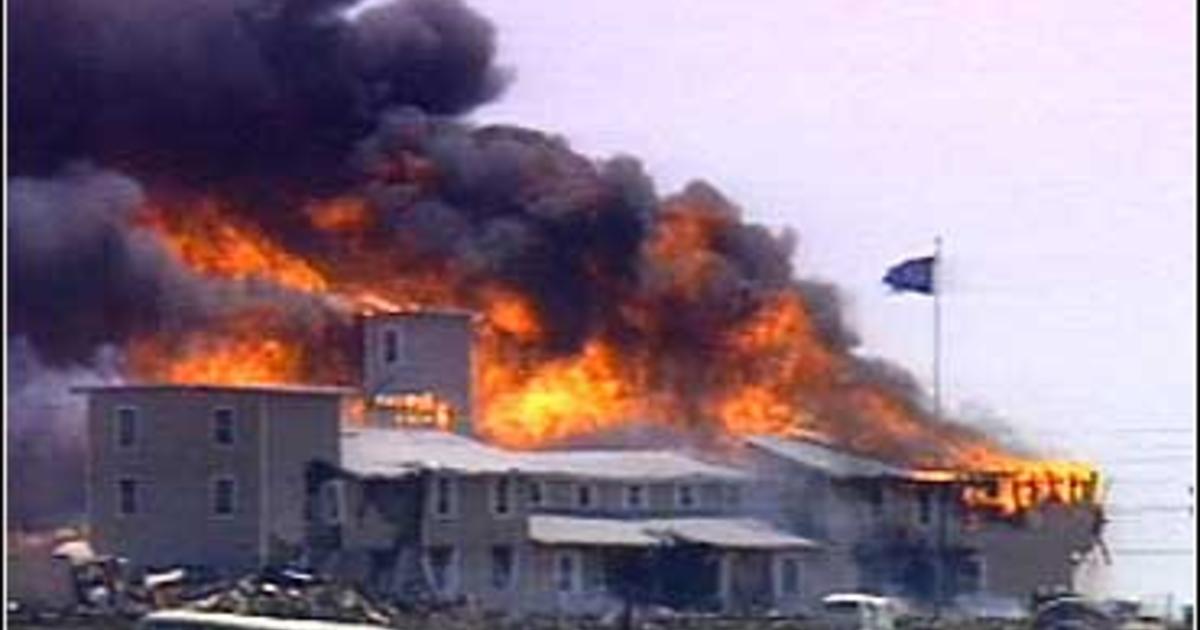Even people who can’t tell you what agencies were involved in the Waco massacre will say, “They were a suicide cult and set themselves on fire!” We’ll look at the fire, and who started it, at a later date. For now, let’s see if there is any evidence that the Branch Davidians were planning to kill themselves.
Davidian Doctrine
The Branch Davidian’s main focus of study is on the return of Christ. This is evident in the fact that Koresh was famous throughout the world for his exposition of the Seven Seals of the Book of Revelation. Waco survivor David Thibodeau remembers his first “feast celebration” in Waco, “People started flying in from all over, for this very reason to learn the Seals. And like, one night a group of people would come in from England and another night it would be a group of people coming in from New Zealand, Australia, it was pretty interesting, I kept meeting all these people from different areas of the world, it was fascinating to be honest with you.” (12:52)
The Seven Seals are believed to be a description of what’s to happen before and during Christ’s Second Coming. There are many interpretations of the Seven Seals, and the “Second Coming.” Some include believers being spared from judgment by a physical “rapture,” a “catching up” into the air to meet Jesus. Some have believers suffering through the judgment. None that I can find, including those of Davidian teachings, have believers killing themselves. When asked by this author if the BDs under Koresh were a “suicide cult,” David Thibodeau responded, “Was there a planned suicide? No. We had talked about coming out, I think there was a time when David was really paranoid during the 51-day siege. There was a lot going on there, there were a lot of lies watching the press conferences every day. The FBI would tell us one thing and do something totally different in the press conferences. So, we got that, we’re being screwed with by the Feds. They’re telling us that they’re not going to come onto the property with tanks, then they’re saying in the press conferences they had to bring tanks in because we were doing things to provoke them, which was not true…but no, there wasn’t a plan to kill ourselves.” (38:45)
Fellow survivor, Livingstone Fagan, stated, “There was never any suicide pact or plan, there was, however, an expressed reaffirmation amongst certain individuals in the course of events, of their willingness to die for what they believed, rather than surrender to the authority of their persecutors.” (p. 218),
Another Davidian, Sheila Martin, wife of Harvard educated attorney Wayne Martin (who made the 911 call and eventually died in the fire), added that if a suicide pact was discussed, she didn’t know of it, nor would she have agreed. “I never heard that David had such a plan, or approved of such a plan.” (Ibid., p. 218)
Was Koresh a Cult Leader and Psychopath?
Anyone who reads the FBI transcripts of the negotiations with Koresh will quickly see that David hated the term Cult and refused to elevate himself above a Bible teacher.
This exchange between Koresh and ATF supervisor Jim Cavanaugh shows this explicitly:
Koresh: All right. Does [God] have a book with Seven Seals?
Cavanaugh: Yes, he does.
Koresh: Is Psalm 45 the first seal?
Cavanaugh: Well, I’m not sure. But, if you say so, I’ll take your word.
Koresh: You can’t do that. That makes you like a cult follower…I’m not a cult leader. I’m a Bible teacher, okay? (FBI Negotiation transcripts, 3/1/93, pp. 21-22)
Did David Koresh have ideas that were way out of the norm? Yes. Did his students agree to go along with practices you or I wouldn’t? Probably. Did things happen that were outside of the State’s legal parameters at the time? Apparently. We do know that former students left because they weren’t willing to go along with some of David’s practices.
The question that must be asked is, “did the amount of violence that was threatened by the State equal the threat to the public?” No. If the government were truly concerned for the welfare of the children inside Mount Carmel, why did they show up with what was essentially an “army?”
Sociopaths normally show a strong disdain for law enforcement. The fact that Koresh and the Davidians were friendly, and even entertained Sheriff Harwell on multiple occasions, would cast doubt upon that. Again, a conversation between David and Jim Cavanaugh sheds light on Koresh’s worldview:
Koresh: I wish, I wish you knew the Seven Seals.
Cavanaugh: David, listen, ah, ah, you’ve explained them to me.
Koresh: No, no, I haven’t. I’ve not even scratched the surface. Just like, uh, just like I told, uh…Jerry–Jerry Gonzales?
Cavanaugh: Yeah.
Koresh: Robert Gonzales. [Cover name of ATF undercover agent Robert Rodriguez] I really liked that guy too. I’ve always loved law enforcement, because y’all guys risk your lives every day, you know.
Cavanaugh: I understand. Let me…
Koresh: (Sadly) I’m so sorry that…
Cavanaugh: Aw, David, we know that. (pp. 166-7)
This doesn’t sound like the maniac the government and press made him out to be. Koresh does not boast of his people’s prowess in the gunfight with the ATF, he instead complains to Cavanaugh, “Now there’s a bunch of men dead, and there’s a bunch of you guys dead. Now, that’s your fault!” (Ibid., p. 166) Koresh appears to know there is a party at fault here and that is not the normal reaction of a suicidal, sociopath.
































